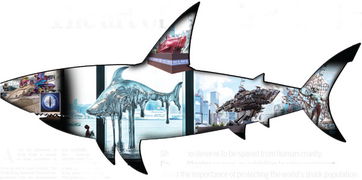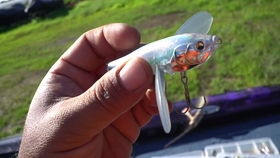Introduction:
Fishing, an age-old pastime, has captured the hearts of many around the world. Whether you're a seasoned angler or a beginner looking to cast your line into the unknown, there's always something new to learn. In this article, we delve into the art of fishing, offering a treasure trove of tips and insights to help you improve your skills and make the most of your time on the water. So, grab your rod, let's dive in, and share some fishing技巧心得分享。
Choose the Right Gear:
The foundation of a successful fishing trip lies in the gear you choose. Here are some key points to consider:

- Rod and Reel: Select a rod and reel that match the type of fishing you plan to do. For freshwater fishing, a spinning rod and reel are versatile and easy to use. For saltwater fishing, a baitcasting rod and reel might be more suitable.
- Line: The type of line you use depends on the fish you're targeting. Monofilament is great for beginners due to its flexibility and ease of casting. Fluorocarbon line is more invisible to fish and has less stretch, making it ideal for catching larger fish.
- Hooks: The size and type of hook you use should match the bait you're offering. For example, if you're using live bait, a hook that matches the size of the bait is best.
Learn the Basics of Casting:
Casting is a fundamental skill that every angler should master. Here's how to do it:
- Hold the Rod: Grip the rod with your dominant hand, placing your index finger on the reel seat and your thumb on the handle.
- Backcast: Bring the rod back over your head, keeping the line tight. This helps load the reel with line.
- Forward Cast: Bring the rod forward, releasing the line as you do. Practice your casting in an open area to get a feel for the motion.
Understand Fish Behavior:
To catch fish, you need to understand their behavior. Here are some key points:
- Seasonal Patterns: Fish often move to different areas depending on the season. In spring, they may be spawning, while in summer, they might be seeking cooler waters.
- Feeding Times: Fish are most active during dawn and dusk. This is the best time to fish if you're targeting species like bass or trout.
- Water Conditions: Fish are sensitive to water conditions like temperature, clarity, and flow. Understanding these factors can help you predict where they might be.
Use the Right Bait:
The type of bait you use can make or break your fishing trip. Here are some tips:
- Natural Bait: Live bait, like worms or minnows, can be very effective. However, it requires more effort to catch and prepare.
- Artificial Lures: Artificial lures come in various shapes and sizes and can be very effective. Choose lures that mimic the movement and appearance of the fish's natural prey.
- Scented Baits: Adding scent to your bait can attract fish from a distance. Be sure to use a scent that is legal and appropriate for the fish you're targeting.
Patience is Key:
Fishing is a patient sport. Here are some tips to help you stay focused:
- Take Breaks: If you're not catching fish, take a break. This can help you clear your mind and stay fresh.
- Stay Quiet: Fish are sensitive to noise. Keep your movements and conversations to a minimum.
- Be Flexible: If one technique isn't working, try something different. Experiment with different baits, lures, and locations.
Conclusion:
Fishing is a rewarding hobby that can provide hours of relaxation and enjoyment. By following these tips and insights, you'll be well on your way to becoming a skilled angler. Remember, the key to success is practice, patience, and a willingness to learn. So, grab your gear, head to the water, and start casting your line. Happy fishing!












